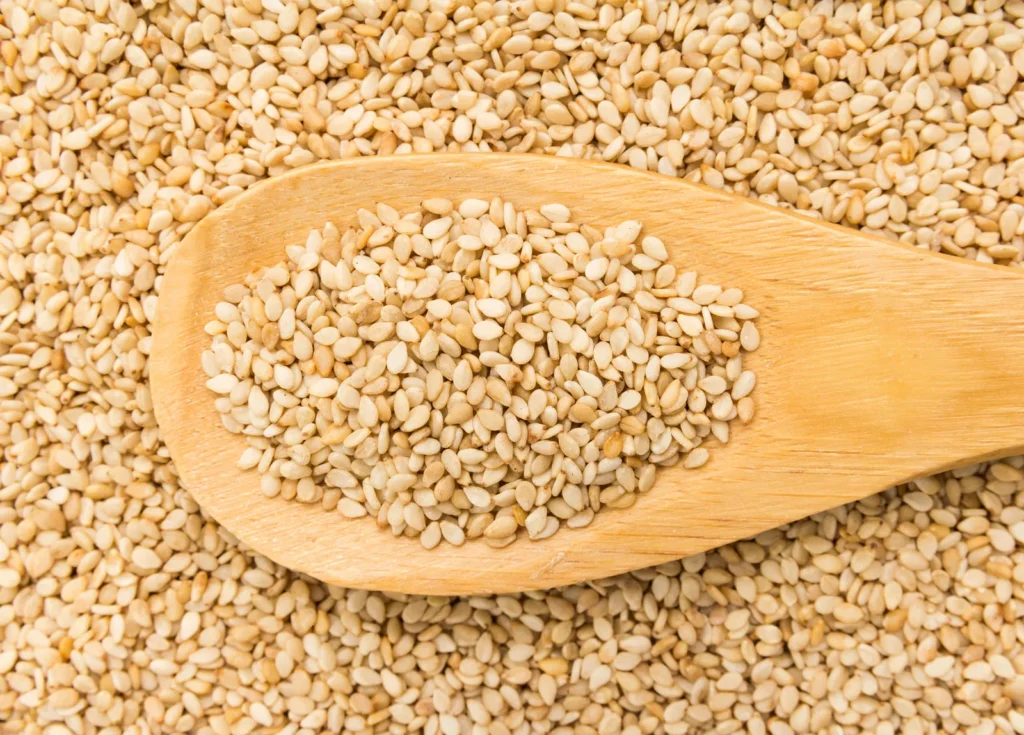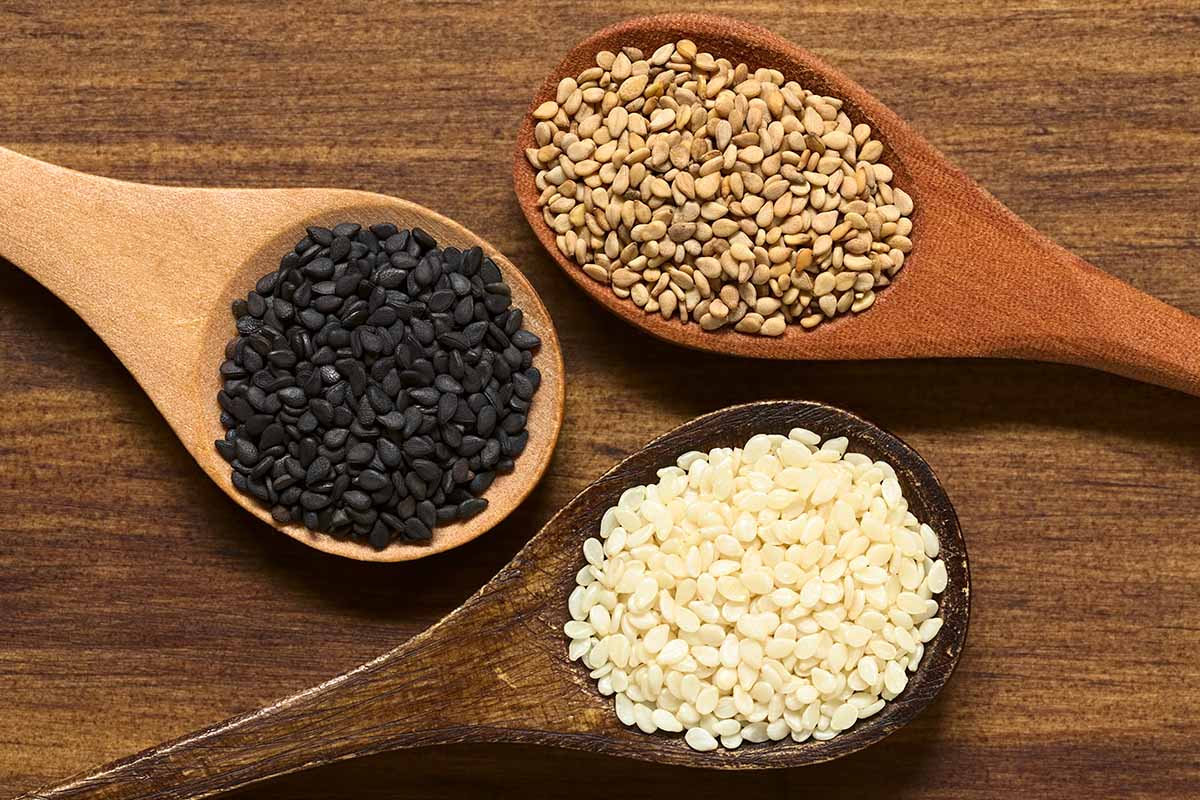Seasame Seed
Sesame Seed
What is sesame Seed?
Sesame, (Sesamum indicum), is annual plant of the family Pedaliaceae, grown since antiquity for its seeds, which are used as food and flavoring and for extraction of vegetable oil. Widely cultivated, the sesame plant is found in most of the tropical, subtropical, and southern temperate areas of the world. The aroma and taste of sesame seed are mild and nutlike. The chief constituent of the seed is its fixed oil, which usually amounts to about 44 to 52 percent. In Ethiopia a large number of sesame seed varieties exist.Three varieties are well known: Humera, Gondor and Wellega. The Humera variety is appreciated world wide for its aroma and sweet taste.


Health Benefit Of Sesame Seed
Good source of vitamins and minerals
Sesame seeds are a good source of several B vitamins, vitamin E, iron, calcium, magnesium, phosphorus, and zinc.
High Fiber
Three tablespoons of unhulled sesame seeds contain 3.5 grams of fiber, which supports digestive health and may reduce your risk of heart disease. Eating more sesame seeds is a good way to increase your daily dietary fiber intake.
May Lower Cholesterol and Triglycerides
Some studies suggest that regularly eating sesame seeds may help decrease high cholesterol and triglycerides — which are risk factors for heart disease . Sesame seeds consist of 15% saturated fat, 41% polyunsaturated fat, and 39% monounsaturated fat. Research indicates that eating more polyunsaturated and monounsaturated fat relative to saturated fat may help lower your cholesterol and reduce heart disease risk
Nutritious Source of Plant Protein
Sesame seeds supply 5 grams of protein per 3-tablespoon (30-gram) serving . Sesame seeds — particularly hulled and roasted ones — are a good source of protein, which is a necessary building block for your body from muscles to hormones
May Help Lower Blood Pressure
Sesame seeds are high in magnesium, which may help lower blood pressure Additionally, lignans, vitamin E, and other antioxidants in sesame seeds may help prevent plaque buildup in your arteries, potentially maintaining healthy blood pressure
Helpful for blood Sugar Control
Sesame seeds are low in carbs while high in protein and healthy fats — all of which may support blood sugar control. Additionally, these seeds contain pinoresinol, a compound that may help regulate blood sugar by inhibiting the action of the digestive enzyme maltase
Rich in Antioxidants
Many studies suggest that consuming sesame seeds may increase the overall amount of antioxidant activity in your blood. The lignans in sesame seeds function as antioxidants, which help fight oxidative stress — a chemical reaction that may damage your cells and increase your risk of many chronic diseases. Additionally, sesame seeds contain a form of vitamin E called gamma-tocopherol, an antioxidant that may be especially protective against heart disease
May Support Your Immune System
Sesame seeds are a good source of several nutrients crucial for your immune system, including zinc, selenium, copper, iron, vitamin B6, and vitamin E.
May Soothe Arthritic Knee Pain
Osteoarthritis is the most common cause of joint pain and frequently affects the knees. Several factors may play a role in arthritis, including inflammation and oxidative damage to the cartilage that cushions joints. Sesamin, a compound in sesame seeds, may help reduce joint pain and support mobility in arthritis of the knee.
May Support Thyroid Health
Sesame seeds are a good source of selenium, supplying 18% of the RDI in both unhulled and hulled seeds. Your thyroid gland contains the highest concentration of selenium of any organ in your body. This mineral plays a vital role in making thyroid hormones.In addition, sesame seeds are a good source of iron, copper, zinc, and vitamin B6, which also support the production of thyroid hormones and aid thyroid health .
May Aid Hormone Balance During Menopause
Sesame seeds contain phyto estrogens, plant compounds that are similar to the hormone estrogen. Therefore, sesame seeds might be beneficial for women when estrogen levels drop during menopause. For example, phyto estrogens may help counteract hot flashes and other symptoms of low estrogen.